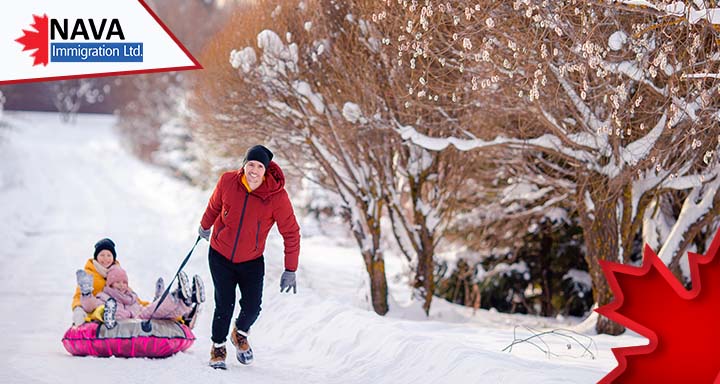Newcomer Guide: How to prepare for first winter in Canada?
Are you a newcomer to Canada or planning to move to the country in this chilling winter season? If yes, you must be ready beforehand to avoid the troubles and harshness of the season. Here’s how to prepare for the first winter in Canada as a newcomer.
In Canada, the winter season is harsh and challenging, especially for newcomers. Sometimes, the temperature may even fall below zero. Days are short and chilly as the sun sets early. Besides the season’s freezing and shorter days, winter may even affect people’s moods and general well-being. Due to the cold and gloomy days of winter, people may experience a wave of a bad mood, which is often called “Winter Blues.”
As per a Canadian Journal of Psychiatry study, around 15% of people in Canada experience winter blues. This includes a desire to sleep more and spend more time alone than with family or friends.
In addition, during winter, people may experience a condition called Seasonal Affective Disorder (SAD). It’s a condition that is characterized by recurrent episodes of depression. In Canada, around 2-3% of people experience SAD.
This is notable for newcomers as they newly enter a new environment, adjusting to the new environment as well as dealing with the isolation of the winter season that may impact their mental health.
How to prepare yourself for your first winter in Canada?
Vitamin D and sunlight exposure are essential during the winter season in Canada as well as in all freezing places. Canada’s Mental Health Commission suggests individuals take Vitamin D supplements. In addition, They were also advised to use light therapy lamps, which mimic natural sunlight and can help regulate circadian rhythms.
Moreover, despite the challenges, exploring the outdoors throughout the winter is crucial for newcomers as well as Canada’s natives.
To uplift your mood and change your mindset, you can also participate in outdoor activities in winter, such as snowshoeing, skiing, or even taking a relaxing walk.
Physical activities and spending time in natural light can positively impact your overall well-being.
Besides these, it is critical to maintain good food and lifestyle practices. You can even perform a regular indoor exercise routine, which will increase endorphin levels. Also, eating a balanced and healthy diet can improve mood and energy levels.
You can also embrace new hobbies to improve your mood and uplift your energy in winter. This will give you a sense of fulfillment and joy. In addition, you can plan short trips and vacations with your family and friends to explore and enjoy the changing environment and climate. This is essential because, during the holiday season, people often experience mental illness. As per the Canadian Mental Health Association, during the winter season, 52% of individuals in Canada report feelings of isolation, depression, and anxiety.
However, if winter blues continue to affect your everyday life, you can consider seeking professional help. A mental health expert can offer support, advice, and methods to help you deal with the seasonal challenges.
What Support Systems and Resources are Available in Canada for Newcomers?
If you are a newcomer and seeking how to prepare for the first winter in Canada or feeling winter blues, there are several resources in Canada that can help you handle and overcome the situation.
- Canadian Mental Health Association (CMHA): Its regional branches deliver counseling and community programs to individuals. You can navigate the Government of Canada’s Wellness Together portal for more valuable resources.
- Suicide Prevention and Crisis Support: If you are experiencing severe distress or suicidal thoughts, you can Call Talk Suicide at 1-833-456-4566 toll-free in Canada (1-866-277-3553 in Quebec) or dial 911.
- Warm Lines for Casual Support: It’s an available option for those who just want to talk or share their experience.
- Youth Peer-to-Peer Online Community: It’s for young newcomers to Canada who are looking for peer support during this harsh time.
- Community and Cultural Groups: You can also link with community groups for a sense of familiarity and community bonding.
- Support for International Students: In Canada, several organizations organize Winter Wellness events and cultural adaptation programs and offer crisis support and counseling to students experiencing seasonal harshness. International students may contact their school’s international student office for tailored support.
All these resources will help individuals or newcomers in Canada tackle the challenges during the freezing winter season. Also, it can help you understand how to prepare for the first winter in Canada.





